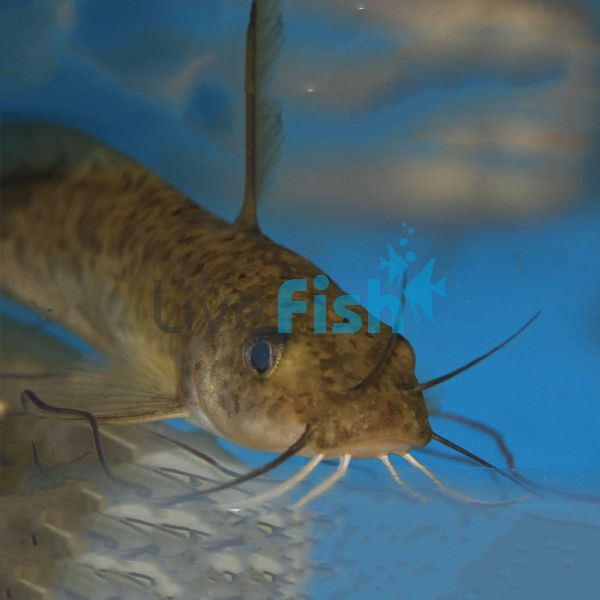Tandanus Catfish 5cm
The Tandanus Catfish, also known as the Eel-Tailed Catfish, is probably Australia's most famous and popular native catfish species. This is such a fascinating and unique species which really should be way more popular worldwide. They are a great alternative to some the tank buster catfish available in the hobby and have a much more peaceful demeanour. Aside from being a popular aquarium fish amongst predator and native aquarium keepers, these are a great aquaponics, sports and table fish as well.
- Buy 5 for $32.97 each and save 10%
- Buy 10 for $29.30 each and save 20%
Tandanus Catfish
The Tandanus Catfish, also known as the Eel-Tailed Catfish, is probably Australia's most famous and popular native catfish species. This is such a fascinating and unique species which really should be way more popular worldwide. They are a great alternative to some the tank buster catfish available in the hobby and have a much more peaceful demeanour. Aside from being a popular aquarium fish amongst predator and native aquarium keepers, these are a great aquaponics, sports and table fish as well.
Tandanus Catfish have a sleek, elongated body that can grow up to 60 cm in length, making them suitable for large tanks. Their coloration ranges from brown to dark grey, often with a mottled pattern that provides excellent camouflage in their natural habitat. The long, slender tail is reminiscent of an eel, giving this catfish its common name. This species is awesome for larger community systems due to its ability to coexist with a variety of tank mates, making it a versatile choice for community aquariums given it has enough space.
Breeding Tandanus Catfish in the home aquarium is uncommon but not impossible. They are egg layers, typically spawning in nests created by the male. Providing a spacious tank with plenty of hiding spots and a sandy substrate can help encourage breeding behaviours. The male will guard the eggs until they hatch, displaying a level of parental care that is quite rare among catfish species. Males and females though do not have any dimorphic traits, so the hope is to have a large enough aquarium with a few catfish and letting them pair off naturally.
Tank Recommendations for your Tandanus Catfish
Due to their size and active nature, Tandanus Catfish require a large aquarium with a minimum volume of 400 litres. In smaller aquarium Tandanus catfish can become especially territorial so a larger footprint is always best. A tank with a sandy or fine gravel substrate, driftwood along with caves and dense vegetation is ideal to mimic their natural habitat and provide territories. Maintaining water conditions with a pH of 6.5-7.5 and a temperature range of 24-26°C is best.
Suitable Tank Buddies
Tandanus Catfish are generally peaceful and can be kept with a wide range of tank mates. However, due to their size, they should not be housed with very small or delicate species that could be seen as prey.
Usually Compatible
Top dwelling species like archer fish or saratoga and other native Australian fishlike lungfish, jade perch, Australian bass and snakehead gudgeons.
Sometimes Compatible
Large rainbows and smaller natives like spangled perch.
Rarely Compatible
Any nano community aquarium fish will become an easy meal for the eel tail catfish.
Feeding your Tandanus Catfish
Tandanus Catfish are omnivores and have a hearty appetite. They readily accept a variety of foods, including high-quality sinking pellets, flakes, and a range of live and frozen foods. Occasional treats frozen foods like bloodworms pieces of chopped seafood can give them a very varied diet.
| Scientific Name | Tandanus Tandanus |
|---|---|
| Care Level | Moderate |
| Common Names | Tandanus Catfish, Eel Tail Catfish |
| Diet | Carnivore |
| Fish Family | Plotosidae |
| Lifespan (years) | 15 |
| Max. Length (cm) | 60 |
| Min. Tank Volume (l) | 400 |
| Origin | Australia |
| Reef Safe | Yes |
| Sociability | Semi-aggressive |
| Venomous | No |
| Water Conditions | 24-28° C, pH 6.0-7.0 |




